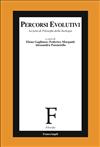
Religious freedom and the quest for a new creed. Herbert Spencer’s religious thought in context. The present article is an attempt to contextualize Herbert Spencer’s religious thought, as outlined in the first part of his First Principles (1862) under the title of The Unknowable. Following the most recent scholarship, Spencer’s doctrine of the Unknowable is accounted for by reference to the need for a New Reformation advocated in the early 1850s by the radical weekly The Leader. The Author argues that Spencer’s emphasis on religious freedom was motivated by the necessity for a new creed which was to be neither dogmatically religious nor purely scientific, while being broad enough to harmonize not only all religious faiths but also science and religion. It is suggested that for Spencer the cultural circle of The Leader proved not only to be a source of ideas on religious matters, but also a stimulating instance of the beneficial effects which a free discussion of even radical opinions could exercise on the intellectual development of society. Finally, after a survey of The Leader’s critical stance on natural theology, Spencer’s attitude towards religion and his rationale for religious freedom are linked to his Nonconformist background.
